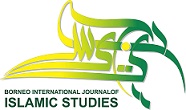The Difference of a Child (Walad) Concept in Islamic Inheritance Law and its Implications on The Decisions of the Religious Courts in Indonesia
Abstract
This article is based on the fact that there is still the disparity of decisions among the Religious Court Judges on heirs, especially a child (walad), when handling the inheritance disputes. This is because there is a general provision of the meaning of walad contained in the Indonesian Compilation of Islamic Law (KHI) in which it includes both a son and a daughter. In addition, there is no obligation for Religious Court Judges to use the KHI as the basis for legal considerations, allowing for some Religious Court Judges to use the classical Islamic Jurisprudence (fiqh) as the legal basis in deciding a case. This article aims to investigate the impact of the general concept of walad (a child) and measures should be taken the Government to accommodate the legal reference material for Religious Court Judges, especially the KHI and the classical Islamic Jurisprudence (fiqh). It employs normative legal research which primarily examines the decisions of the Religious Courts in East Kalimantan, specifically Samarinda, Tenggarong and Tanah Grogot. The findings reveal that since there is no obligation for the Judges to use the KHI, referring to the classical Islamic Jurisprudence when giving legal considerations and deciding cases of inheritance is not against the procedural law in Indonesia. Yet, this measure potentially creates the disparity of decisions in the Religious Courts since the fiqh differs in determining who the walad is: merely sons or include both sons and daughters. This has frustrated the objective of the KHI as the codification of Islamic Law in Indonesia which unites the differences of opinions in the fiqh and, thus, assures legal certainty in resolving the disputes. Hence, the government should enact the KHI as a Law in Indonesia in order to end the forum of choice for the Judges in basing their decisions so that the disparity of decisions in the Religious Court minimized and legal certainty assured for the justice seekers.
Keywords: Islamic inheritance law, walad, fiqh, religious court's decision.
References
Alfitri. “Whose Authority? Contesting and Negotiating the Idea of a Legitimate Interpretation of Islamic Law in Indonesia.” Asian Journal of Comparative Law 10, no. 2 (2015): 191–212. https://doi.org/10.1017/asjcl.2016.1.
Alfitri, Alfitri. “The Role of Sharia Judges in Indonesia: Between The Common Law and The Civil Law Systems.” Mazahib Vol. 16, no. 2 (August 30, 2017): 110–24. https://doi.org/10.21093/mj.v16i2.825.
Ash-Shabuni, Syaikh Muhammad Ali. Shafwatut Tafasir Tafsir-Tafsir Pilihan. Translated by Yasin. Cet. 1. Vol. 1. Jakarta: Pustaka Al-Kautsar, 2011.
Chalim, Muhammad Abdul. “Peradilan Agama Dan Kompilasi Hukum Islam Sebagai Pranata Hukum Nasional.” Pesantren VII, no. 2 (1990).
Hanbal, Ahmad Bin. Musnad Al-Imām Aḥmad Bin Ḥanbal. Juz 23, Cet.1. Muassasah al-Risalah, 2001.
Hazairin. Hendak kemana hukum islam? Jakarta: Tintamas Indonesia, 1970.
Hermawan, Dadang, and Sumardjo Sumardjo. “Kompilasi Hukum Islam Sebagai Hukum Materiil Pada Peradilan Agama.” YUDISIA : Jurnal Pemikiran Hukum Dan Hukum Islam 6, no. 1 (August 16, 2016): 24–46. https://doi.org/10.21043/yudisia.v6i1.1469.
Kompilasi Hukum Islam (n.d.).
Mawardi, Ahmad Imam. “The Political Backdrop of The Enactment of The Compilation of Islamic Laws in Indonesia.” In Shari’a and Politics in Modern Indonesia, by Arskal Salim and Azyumardi Azra. Singapore: Institute of Southeast Asian Studies, 2003.
Muhibbin, Moh, and Abdul Wahid. Hukum kewarisan Islam sebagai pembaruan hukum positif di Indonesia. Cet. 1. Jakarta: Sinar Grafika, 2009.
Nurlaelawati, Euis. Modernization, Tradition and Identity: The Kompilasi Hukum Islam and Legal Practice in the Indonesian Religious Courts. Amsterdam: Amsterdam University Press, 2010.
Rusyd, Ibnu. Bidayatul Mujtahid. Translated by Abu Usamah Fakhtur Rokhmah. Cet. 2. Jakarta: Pustaka Azzam, 2011.
Suryati. Hukum Waris Islam. Yogyakarta: Penerbit Andi, 2017.


.png)






